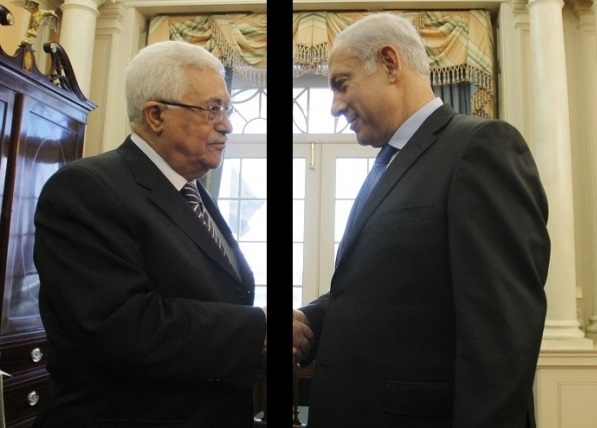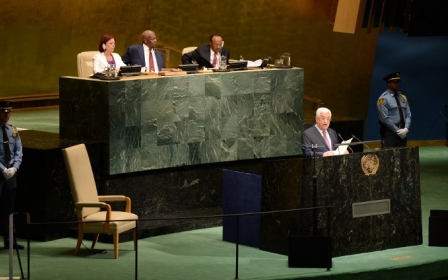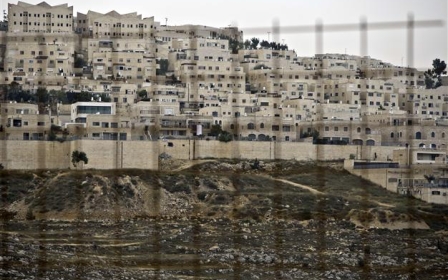Palestinian president threatens 'political war' on Israel

Palestinian President Mahmoud Abbas will wage a "political war" against Israel, if efforts to secure a UN resolution to end the Israeli occupation are hampered, a leader in his Fatah party has said.
"This is the last chance for the world to accept the resolution that is currently being prepared for at the Security Council," Nabil Shaath told Ma'an news agency over the weekend.
The Palestinian Authority (PA) plans to submit to the UN Security Council a resolution to end the Israeli occupation of the West Bank in three years.
Abbas warned against a US veto blocking the proposed resolution, as Washington had frequently blocked any condemnation of its ally Israel at the international body.
In response, Abbas would give a green light for "the war of international boycott of Israel" and take Tel Aviv to the International Criminal Court, Shaath said.
Israel sees the UN bid as a violation of the Oslo Accords, signed by the two parties, but the Palestinian side has long complained that its Israeli counterpart is not respecting the agreements.
The proposed resolution is already backed by the Organization of Islamic Cooperation (OIC), which is made up of 57 states.
The UN General Assembly has recognised Palestine as a member observer state in 2012, despite Israeli objections, and last April, the PA requested joining 15 international agencies.
Shaath's comments follow Abbas's speech at the UN General Assembly on Friday in which he accused Israel of waging a "war of genocide" in Gaza this summer and vowed to seek war crimes prosecutions.
Israeli Prime Minister Benjamin Netanyahu is scheduled to speak at the same body on Monday and promised over the weekend that he will expose "slanders and lies" from Abbas' speech.
New Israeli-Indian ties
Meanwhile, on the sidelines at the UN, Netanyahu and Indian counterpart Narendra Modi have pledged to boost cooperation after meeting in New York.
The meeting appears to signal a strengthening of ties.
"We are very excited by the prospects of greater and greater ties with India. We think the sky's the limit," Netanyahu said.
The Israeli premier described the two countries as "ancient civilizations" that are also democracies, and invited Modi to visit Tel Aviv, which if accepted, would make him the first Indian prime minister to visit Israel.
Modi, who leads a Hindu nationalist party, had visited Israel before his election as prime minister in May.
He was the leader of the state of Gujarat during the anti-Muslim riots that killed more than 1,000 people in 2002.
But Modi boasted to Netanyahu of the treatment of the Jewish community in India.
"India is the only country where anti-Semitism has never been allowed to come up and where Jews have never suffered and have lived as an integral part of our society," Modi said.
Israel had established relations with Israel in 1992, and former Israeli premier Ariel Sharon became the first Israeli leader to visit to New Delhi in 2003.
New MEE newsletter: Jerusalem Dispatch
Sign up to get the latest insights and analysis on Israel-Palestine, alongside Turkey Unpacked and other MEE newsletters
Middle East Eye delivers independent and unrivalled coverage and analysis of the Middle East, North Africa and beyond. To learn more about republishing this content and the associated fees, please fill out this form. More about MEE can be found here.




